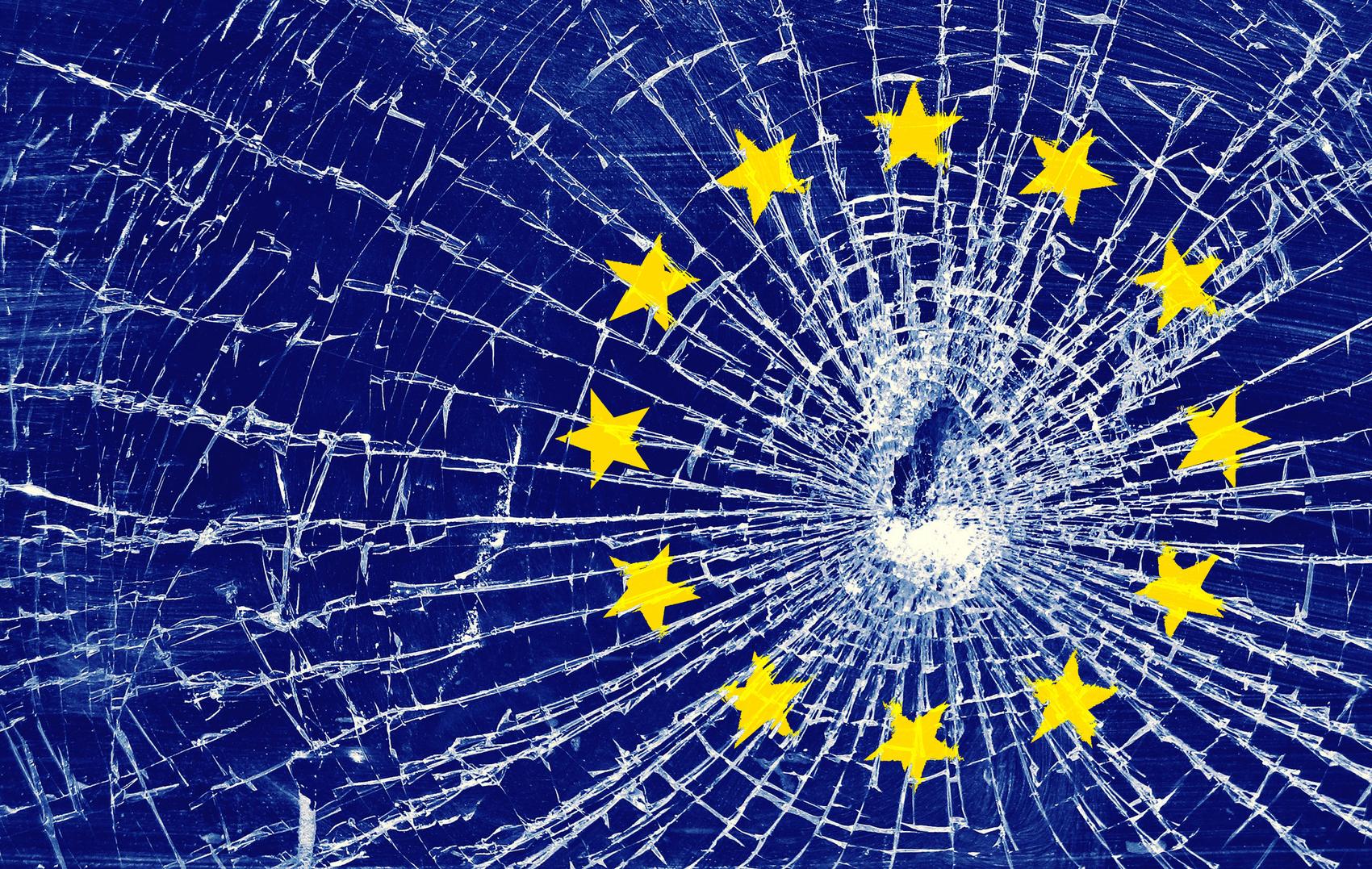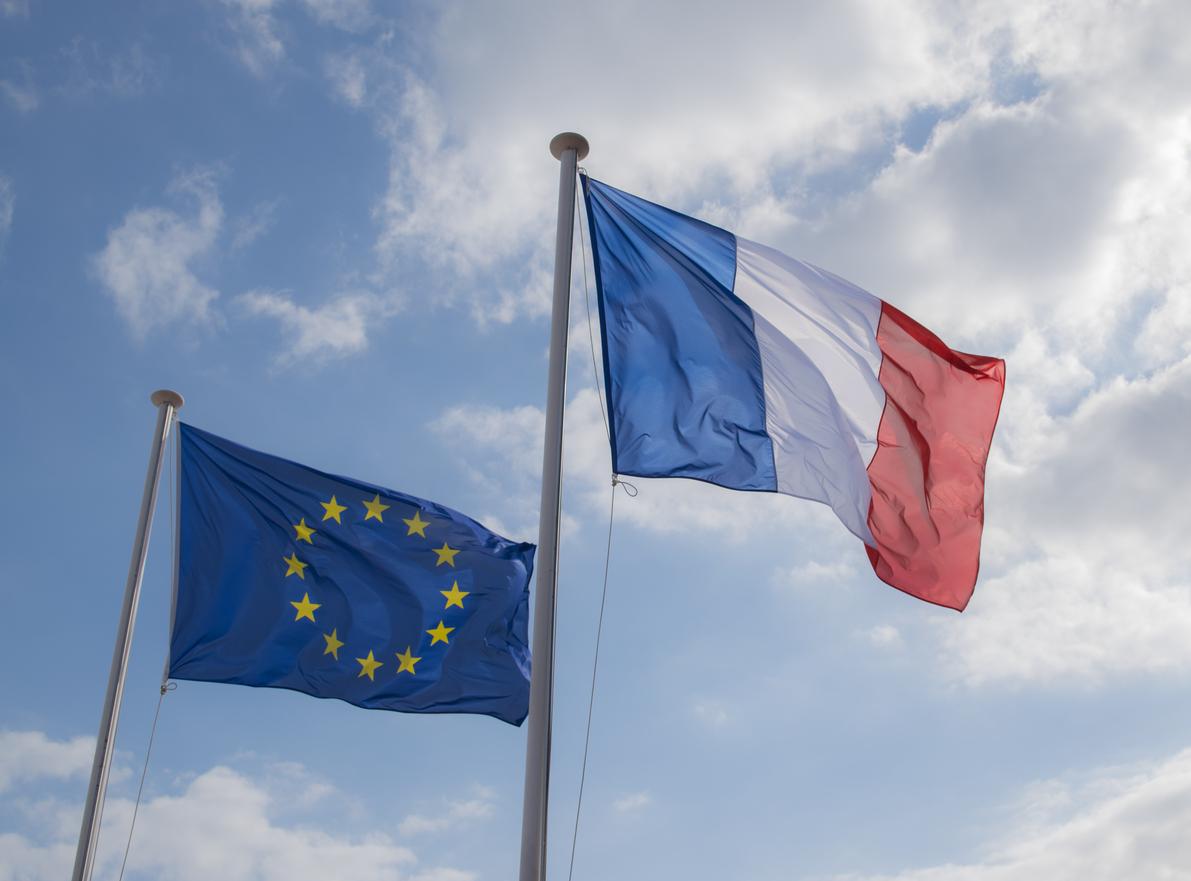
Last year, when the most passionately pro-European candidate, the centrist Emmanuel Macron, beat off the challenge of the leader of the extreme right-wing National Front, Marine Le Pen, and won the French presidential election, supporters of European integration heaved a huge sigh of relief. With Le Pen’s defeat, the threat of an imminent terminal crisis of the European Union was averted.
The victory of Chancellor Angela Merkel in the German elections a few months later seemed to confirm that the established, pro-European political parties retained the upper hand in the EU’s two key member states. It seemed that ‘business as usual’ could resume – also because the quadruple crisis (Eurozone, refugee, Ukraine and Brexit) that had hit the EU during the last decade had meanwhile receded.
Macron’s election and the continuation of Germany’s grand coalition government of Christian Democrats and Social Democrats may indeed be good news for European integration. Despite almost 10 years of permanent crisis in the EU, the two nations that have been the principal driving forces of European integration are governed by the most pro-European governments that their elections could have produced.
The new governments in Paris and Berlin have pledged to revitalise the uniquely intensive Franco-German relationship. Barring unforeseen political events, they have a four-year window of opportunity to strengthen the EU, to make it more crisis-resilient, not least through reforms of the Eurozone, and, above all, to make it more popular. The weight of the Franco-German tandem in an EU of 28 (in a year’s time 27) member states may no longer be as great as in the original six-member organisation. But in as far as the two states represent opposite poles, with many northern states standing close to the German pole and many southern states to the French, a bilateral Berlin-Paris bargain can still often find the support of other members.
The rise of anti-European populists
The challenge of keeping the EU on the rails was shown by the results of the Italian elections on 4 March, the same day that German Social Democratic Party members approved the formation of a new grand coalition in Berlin. Nowhere in the EU, in the last decade – not even in Greece – have anti-European populist parties achieved as spectacular a breakthrough as in Italy last month (see table). For the second time since the end of the Cold War, the old political-party system in Italy has collapsed. This time anti-European populists have been the primary beneficiaries.
The kind of government formed in Rome is still uncertain. It is possible that new elections will be called. It is also possible that the anti-European parties (in different respects) – the Five-Star Movement, winner of the elections, and the League – will form a temporary government, rewrite Italy’s electoral laws and then call new elections in the expectation of winning more seats than in last month’s election.
During the election campaign, both the Five-Star Movement and the League distanced themselves from earlier pledges to stage a referendum on whether Italy should abandon the euro. The fulfilment of their campaign pledges on taxation, public spending and pension reform, however, would increase the Italian government budget deficit, run up against Eurozone fiscal rules and, given the size of the Italian public debt, risk unleashing a fresh crisis in the Eurozone. As Italy would be harder to bail out than the far smaller countries hit by sovereign debt crises between 2010 and 2015, this crisis could prove existential for the euro.
There is no doubt that the Italian vote was a vote of protest against the EU. After Greece, no Eurozone member has fared as badly economically as Italy since the introduction of the single currency. With Greece, Italy has also been in the frontline of the refugee crisis – and (legitimately) felt abandoned in this crisis by other EU members.
It is hence not surprising that the surge of populist anti-European parties during the last decade has been strongest in Italy and Greece. However (see table), this surge is a genuinely pan-European phenomenon that has spared hardly any EU member state. Not all these parties were created in response to EU-level developments. However, the timing of their surge leaves no doubt that populist parties have prospered enormously from the Eurozone crisis and then, to an even greater extent, from the refugee crisis. Although the United Kingdom is a member of neither the Eurozone nor the Schengen Area, the refugee crisis has arguably also contributed indirectly to the Brexit referendum outcome.
Table: The Decline of Pro-European & Rise of Anti-European Parties during the EU’s Quadruple Crisis, 2010-2018

The case for European cooperation
As I explain in a chapter in The European Union in Crisis (edited by D. Dinan, N. Nugent and W. Paterson), Europe became a uniquely closely politically integrated region after the World War II for two main reasons. One of these is that the party-political landscape of most of the EU’s member states was dominated by internationalist, pro-European political parties: Christian Democrats, Social Democrats and Liberals. The Green parties that emerged in many countries starting in the 1980s shared the internationalist orientation of the ‘established parties’. If anti-European populist parties establish themselves durably as influential political forces in EU member states, this would be bound to have a negative impact on European integration. Europe can scarcely be built – nor maintained on an ongoing basis – by political movements that want, in one way or another, to dismantle it.
The other reason why Europe became so closely politically integrated after World War II is that the integration process was guided and shaped by the ‘cooperative hegemony’ of France and Germany. Paris and Bonn/Berlin did not dominate the EU’s everyday politics. However, they exercised a dominant influence over the major decisions and integration projects that moulded the EU we have today.
Close cooperation between these two key member states may, during the next few years, provide a centripetal counterweight to the centrifugal dynamics unleashed by the rise of the anti-European populists. This trend, however, will make it more difficult for Germany and France to provide the EU with stabilising leadership as compared to the last decade.
Domestic political trends in both countries will probably not ease this task either. Despite Le Pen’s defeat in France, the extreme, anti-European right did better in the presidential and parliamentary elections than ever before. They may again be Macron’s strongest opponents at the next presidential election, scheduled for 2022. Popular adhesion to the new president’s programme and person is shallow. If, like most of his predecessors, he should fail in his bid to reform France and rejuvenate the French economy, his political support and re-election prospects may fade fast.
In Germany, the parties in the grand coalition suffered an overall drop in voting support by 14 percent (from 67 to 53) at last year’s elections, which also saw the anti-European populist party, the AfD (Alternative für Deutschland – Alternative for Germany), enter the federal parliament as its third-biggest party. It will be difficult for the established parties, especially those of the mainstream centre-right, to ignore the new competition provided by the AfD. By 2021, Germany will have been governed for 12 of the last 16 years by a grand coalition. If, as has often been the case, such governments tend to strengthen the political extremes, the AfD may become the principal beneficiary of the continuation of Berlin’s grand coalition.
If the populist anti-European ‘contagion’ should penetrate very deeply into the veritable ‘hard core’ of the EU in Paris and Berlin, then the future of the EU – as we know it today, at least – would look very bleak indeed. In politically ‘normal’ times, the EU could perhaps continue to muddle through as it has done in the past. But, as the German saying goes, ‘die nächste Krise kommt bestimmt’ – ‘a new crisis is bound to crop up’. If and when it does, there is no guarantee that the EU would survive it to the same extent that it has survived the crises of the last decade.
Douglas Webber is a Professor of Political Science at INSEAD.
-
View Comments
-
Leave a Comment





No comments yet.